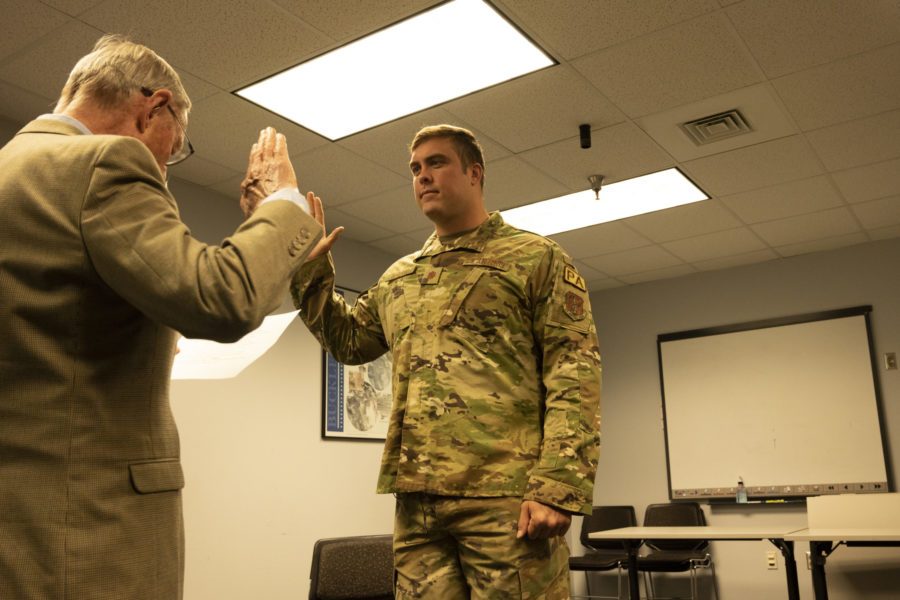Department of the Air Force officers are about to get credit for their academic achievements: For the first time in years, Air Force and Space Force promotion boards will be told which able to see which candidates for major and lieutenant colonel have advanced academic degrees.
The move to “unmask” advanced degrees went into effect Jan. 1 by order of Air Force Secretary Frank Kendall, reversing an eight-year-old policy that hid those details from promotion board members. In a memo explaining the change, Kendall cited the value of advanced expertise in countering growing military threats from China and Russia.
“To do this effectively, we need leaders and supporting staff throughout the DAF at all levels who have deep expertise in emerging technologies and their applications to military operations,” Kendall said. “We must also have leaders with expertise in the cultures of our potential adversaries. Such expertise and associated critical thinking skills are developed from many sources and experiences, including advanced academic degree programs.”
Advanced degrees are required for promotion to colonel, and Kendall acknowledged that including those credentials in past reviews for advancement to major or lieutenant colonel had effectively raised the bar. Before that change, “an advanced degree, any advanced degree, was considered necessary for promotion to major or lieutenant colonel,” he said.
That perception was not based policy, however, which is why advanced educational achievements were removed from board consideration in 2014. At the time, then-Chief of Staff Gen. Mark A. Welsh III said his aim was to reinforce the importance of job performance for and ensure “the decision to delay completion of an advanced academic degree will not affect [an officer’s] ability to serve a full career in the Air Force.”
In reversing the policy, however, Kendall emphasized that advanced degrees re “neither a requirement for promotion to major or lieutenant colonel nor a guarantor of promotion.”
“The DAF will continue to value both operationally and educationally derived experience and expertise and will always value high levels of performance,” he added.
Kendall also urged officers not to pursue advanced degrees to “impress a promotion board or check a perceived box.” He said he would instruct promotion boards to value “specific” degrees and military training and operational experience.
According to the most recent Department of the Air Force data, more than three-quarters of Active-duty majors and 97 percent of lieutenant colonels in the Air Force and Space Force possess at least a master’s degree, compared to just 40 percent of captains. But not enough of those advanced degrees are in science, technology, engineering, and math (STEM) fields. A recent report by the Air Force Research Laboratory found that half of all department jobs requiring advanced STEM degrees were either vacant or filled by someone with a lesser credential. The report also noted that there are fewer general officers with advanced STEM degrees today than at any point in the past 30 years.
Pentagon and Air Force policy leaders have warned this lack of technical expertise poses a long term threat to military capability, noting that the U.S. military neither competes effectively for talent with the private sector nor competes numerically with international competitors like China, which has placed greater emphasis on developing a technically skilled workforce.
Former Air Force chief software officer Nicolas M. Chaillan wrote in September 2021 of his frustration with the service’s practice of putting officers inexperienced in software development in charge of large information technology projects and missions. He said their lack of background inevitably led to problems.
“Please stop putting a major or [lieutenant colonel] (despite their devotion, exceptional attitude, and culture) in charge” of technical projects affecting millions of users, Chaillan wrote, “when they have no previous experience in that field. We would not put a pilot in the cockpit without extensive flight training; why would we expect someone with no IT experience to be close to successful” running a major IT program?”
